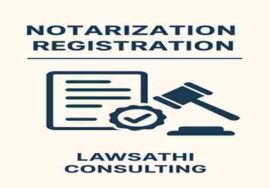
A sole proprietorship
A sole proprietorship
A sole proprietorship, also known as the sole trader, individual entrepreneurship, or proprietorship business, is one that one person owns and manages. It is the simplest form of business. There is no legal distinction between the owner and the business entity.
Proprietorships are simple to start and have minimal regulatory compliance requirements for operating. This entity is ideal for entrepreneurs who are getting into business for the first time and small businesses with few clients.
Who is called a proprietor?
owner, proprietor, or someone who owns (is a legal possessor of) a business. Like “he is the owner of a chain of restaurants.”
The owner of a sole proprietorship business in India is called a proprietor. It cannot be a corporate or legal entity. The proprietor and the proprietorship are considered to be the same legal entity.
The PAN and other documents of the proprietor are the basis for obtaining all other business registrations and licenses. In case of any issues of liability in the business, the proprietor is personally liable for them.
Visit on Lawsathi Consulting for more about proprietorship-
Advantages
1. The entrepreneur can start operations and receive payments from clients, as no registration is required to start a proprietorship.
2. The other advantage of a proprietorship is that it requires no additional compliance in most cases. The PAN of the proprietor and proprietorship are the same. Hence, in most cases, only income tax returns on Form ITR-3 must be filed every year.
3: The proprietor does not have to particularly wind up the company in case he wants to cease operations. This saves a lot of time and effort.
Disadvantages
1. A sole proprietorship does not provide the proprietor with limited liability protection. So the proprietor would be held personally liable in the case of any loss or liability.
2. Any license or registration obtained in the name of the proprietorship cannot be transferred to any other person or entity.
3: The existence of the sole proprietorship is tied to the proprietor; hence, it would cease to exist with the proprietor.
4: A proprietorship cannot raise equity funds from angel investors, venture capital firms, or PE funds. Banks also tend to have restrictions on the amount of credit they can lend.
Due to the disadvantages mentioned above, this registration will be suitable only for small businesses and the unorganized sector with a limited period of existence.






